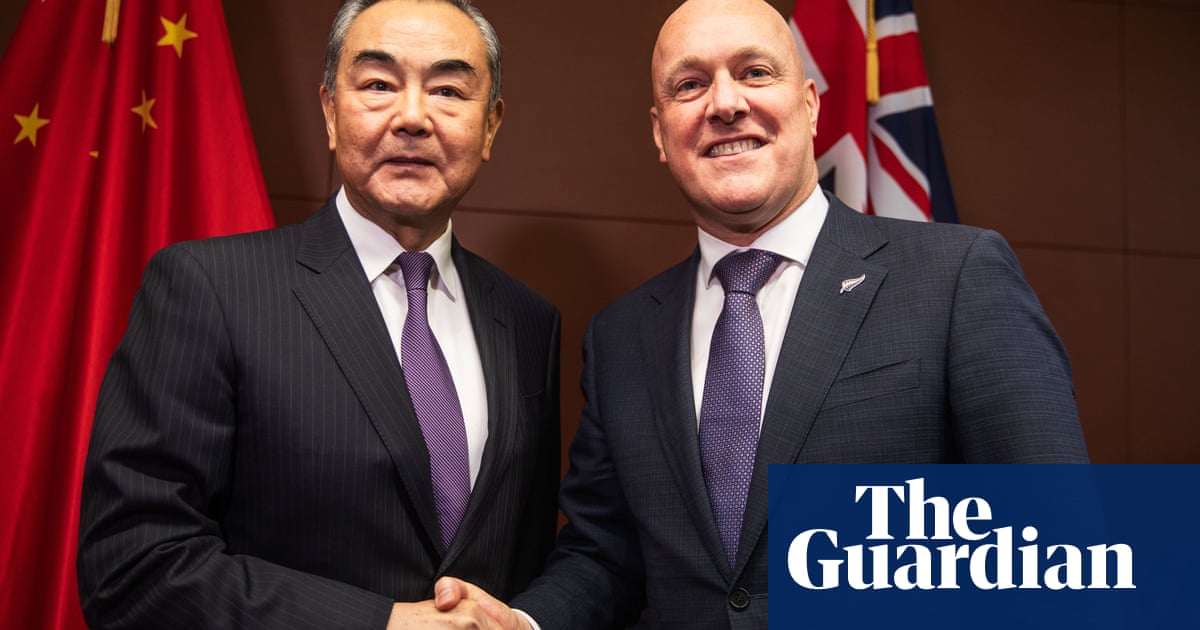
Politicians, journalists and critics of Beijing were among those targeted by cyber-attacks run by groups backed by China, western intelligence services said this week.
The separate cyber-attacks hit the US, UK and New Zealand – all members of the Five Eyes alliance. The network of five countries, which also includes Canada and Australia, share security related intelligence.
While Beijing rejected claims of its involvement, the US and UK chose to take further steps against those entities they said were involved, but New Zealand took a different tack.
How did the US and UK respond to the alleged hacking?
The US and UK have imposed sanctions on individuals and groups that they say were involved in the extensive cyber espionage campaign.
The US government announced sanctions on Monday against hackers that it alleges were responsible for operating the scheme. The US treasury’s office of foreign assets control stated that it sanctioned Wuhan Xiaoruizhi Science and Technology Company Ltd, which it calls a front for the Chinese ministry of state security that has “served as cover for multiple malicious cyberoperations”.
The UK sanctioned two individuals and a front company linked to the cyber-espionage group APT31, which is associated with the Chinese ministry of state security.
And how did New Zealand respond?
New Zealand called out China’s involvement publicly, but it stopped short of imposing sanctions.
New Zealand’s defence minister, Judith Collins, said the country would not follow in the footsteps of the UK and US, because it does not have broader law allowing for autonomous sanctions. Parliament would have to pass legislation to do so.
The foreign affairs minister, Winston Peters, said in a statement to the Guardian: “We consider that this public attribution, which is a rare step in itself, is an appropriate response given the nature of the intrusion and its level of impact.
“Private diplomatic dialogue is an important and valuable step in outlining our concerns. But it does not preclude New Zealand from taking further actions, such as making public statements, where it is in our national interest to do so.”
Robert Patman, a professor of international relations at the University of Otago, agreed that publicly naming China, was a rare and “striking” move.
“To name China – a superpower – publicly as engaging in foreign interference in New Zealand domestic political affairs is quite a serious charge,” Patman said.
Has New Zealand ever imposed sanctions before?
Yes, it imposed sanctions on Russia in 2022 in the aftermath of its invasion of Ukraine. It was the first time that New Zealand levied sanctions individually on a country, and followed similar actions from its allies in Europe and the US.
New Zealand had previously only been able to implement sanctions when the United Nations security council imposed them. Owing to Russia’s veto power at the council, then prime minister Jacinda Ardern said her government would be forced to introduce the new legislation – the Russia Sanctions Act.
“The Russia Sanctions Act was a historical moment for parliament,” says Jason Young, the director of the New Zealand contemporary China research centre. “It is a very unique set of circumstances – it’s not normal for New Zealand to sanction countries independently when there’s a challenge or issue in the relationship.”
Might New Zealand impose sanctions on China in the future?
The likelihood of New Zealand introducing legislation to allow it to impose sanctions in relation to China is slim, due to its complicated relationship with Beijing and the differences in severity of China’s actions compared with Russia.
China is New Zealand’s largest trading partner, with nearly 30% of New Zealand’s exports flowing into China. While the smaller nation has become more vocal in recent years over issues of human rights, the international rules-based order and concern about the potential militarisation of the Pacific, it has typically taken a more conciliatory tone towards China than its Five Eyes partners.
“Governments of a small trade-dependent economy have to think very carefully about the proportionality of their response to issues in a relationship with their largest trade partner,” Young said, adding that New Zealand’s approach was to try to engage with China first, when it is in its best interests to do so.
But New Zealand’s public calling out of China shows the country is taking the matter seriously, even if it does not pursue sanctions, he said.
“It would be out of the ordinary, I think, for us to then pass legislation through parliament to sanction [China]. The only time [New Zealand] has done that was about the invasion of a country, so I’m not saying this is not serious, but it is a question of proportionality.”
New Zealand does not view China as a systemic threat, as the US does, and while it is under no illusions that it is an assertive and authoritarian country, this could account for the nation’s more measured response compared with its Five Eyes partners, Patman said. “New Zealand’s approach to Five Eyes is unity but not uniformity … and we have quite a distinctive relationship with China.”
But China should be on alert, Patman said, as New Zealand’s dependency on its trade begins to wane, and the smaller nation becomes less willing to fall into a “master-servant” relationship with the super-power.
In recent months, New Zealand has stepped up its interest in joining the non-nuclear pillar of Aukus – a security partnership between Australia, the UK, and US prompted by China’s growing influence in the Pacific region and one about which China has expressed “serious concerns”.
A repeat, or escalation, of cyber-intrusion from China could propel New Zealand into Aukus and force it to consider sanctions, Patman said.
“Otherwise, many people in this country would start arguing that New Zealand is not serious about defending its sovereignty and a liberal democracy under attack from authoritarianism,” Patman said.
Read More: World News | Entertainment News | Celeb News
Guardian









